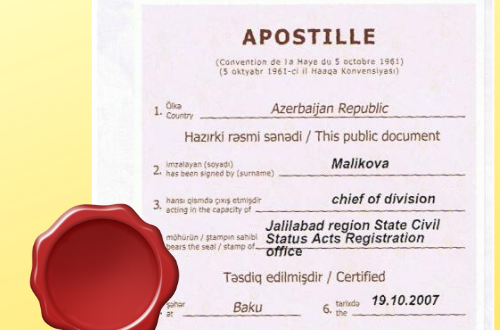Looking Into the Reasons Behind the Necessary Demand of Apostille Accreditation for Legal Papers
In the realm of legal documentation, the mandatory requirement of apostille certification has actually come to be a crucial facet that dramatically affects the credibility and recognition of legal documents on a worldwide scale. Understanding the reasoning behind this need includes delving right into the complex web of legal intricacies, historic precedents, and international contracts that highlight the significance of apostille certification in today's interconnected globe. By discovering the underlying reasons behind this widespread need, a clearer picture arises of why this seemingly governmental procedure holds such immense value for federal governments, organizations, and people alike.
Historical Advancement of Apostille Certification
Exactly how did the idea of apostille qualification evolve over time to end up being a crucial component of international file validation? The requirement for a simplified technique of verifying files for usage throughout borders ended up being evident as worldwide profession and traveling increased.
Initially embraced by a few European nations, the Apostille Convention slowly got international approval as a result of its performance and performance in validating the authenticity of main documents. Over the years, the convention's reach expanded as more nations signed up with, identifying the apostille as an universally accepted kind of document verification. Today, apostille qualification has actually come to be a typical need for confirming lawful papers in worldwide transactions, ensuring smooth communication and lawful process in between nations.
Simplifying International File Legalisation
The streamlining of international paper legalisation procedures has dramatically enhanced effectiveness in cross-border purchases. Simplifying the process of legalizing records for international use has actually come to be critical in helping with swift and smooth purchases between countries. One of the crucial devices that have contributed to this simplification is the fostering of the Apostille Convention, which gives a standardized technique for validating the authenticity of files across getting involved countries.
By adhering to the Apostille demands, nations accept identify each other's public records as legitimate without the need for further legalization. This eliminates the commonly difficult and extensive procedure of several verifications by various authorities, saving time and resources for companies and individuals participated in international tasks.

Guaranteeing File Credibility and Legitimacy
To ensure the authenticity and legitimacy of legal papers in international deals, rigorous verification procedures are important. By needing apostille qualification for legal papers, authorities intend to validate the origin of records and verify the signatures of people entailed.
Furthermore, confirming the credibility of lawful documents with apostille accreditation boosts trust and confidence among celebrations taking part in global transactions. It offers assurance that the papers offered are real and legitimately binding, thereby decreasing the dangers connected with deceitful tasks. In addition, making certain document validity through apostille certification simplifies the legalization process, making it much more effective and reputable for people and companies conducting company across borders. Ultimately, by supporting stringent confirmation standards, apostille accreditation adds to a much more clear and protected global lawful structure.

Promoting Cross-Border Legal Recognition
In the world of international transactions, the apostille qualification not only ensures the credibility and credibility of lawful documents yet likewise plays a pivotal role in promoting cross-border legal acknowledgment (Houston Apostille). When lawful papers bear an apostille certificate, they are easily approved by international authorities without the requirement for more confirmation. This structured procedure expedites the recognition of papers in various nations, advertising performance and decreasing administrative difficulties in lawful issues that transcend national limits
Helping with cross-border lawful recognition through apostille qualification cultivates trust fund and self-confidence in the authenticity of files traded in between countries. By adhering to the standards established forth by the Apostille Convention, countries concur to recognize the apostille seals fastened to records from various other member nations, thus streamlining the process of lawful acknowledgment across boundaries.
Compliance With International Treaty Standards
Conformity with global that site treaty standards is imperative for guaranteeing the consistent application of legal guidelines across participating nations. The Apostille Convention, established in 1961, details the needs for the approval of public records amongst participant nations. have a peek at this site By sticking to the requirements stated in this treaty, nations dedicate to identifying the credibility of each various other's authorities records without the demand for further verification - Houston Apostille. This shared approval enhances the procedure of cross-border document recognition, promoting efficiency and decreasing governmental hurdles.
The Apostille accreditation, as mandated by the treaty, serves as an assurance of authenticity for records such as birth certifications, marriage licenses, court judgments, and notarized actions. This standard method aids prevent scams and makes sure that legal documents originating from one participant country are readily accepted in one more. By abiding with international treaty requirements, nations demonstrate their commitment to promoting the concepts of openness, depend on, and cooperation in lawful matters on a global range.
Verdict

In the realm of lawful paperwork, the necessary requirement of apostille certification has actually come to be a crucial aspect that significantly impacts the legitimacy and acknowledgment of legal documents on a worldwide scale. Today, apostille accreditation has actually become a common need for verifying legal documents in global purchases, making sure smooth communication and legal procedures between nations.
Additionally, verifying the authenticity of legal documents via apostille certification enhances trust fund and confidence amongst events engaging in international deals.In the world of global deals, the apostille certification not only makes certain the credibility and legitimacy of legal files but also plays a crucial duty in promoting cross-border lawful recognition. By sticking to the reference requirements established forth by the Apostille Convention, nations concur to honor the apostille seals affixed to documents from other member nations, therefore streamlining the process of lawful recognition across borders.